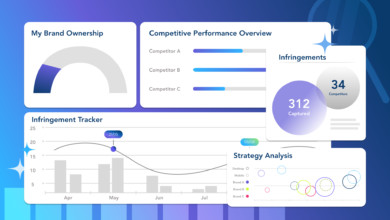AI Search Is Real: An SEO Expert’s Action Plan

▼ Summary
– Industry experts have mixed views on AI’s impact on SEO, with effects varying by business model and potentially reducing traffic and revenue.
– Google remains the dominant search engine but is intentionally slowing its AI progression, possibly due to legal and competitive pressures.
– AI is fundamentally restructuring online business models, making traditional blogging for ad revenue unsustainable and shifting creators to video platforms like TikTok and YouTube.
– Focusing on niche AI platforms can be highly beneficial, as even 1% of total search traffic represents a significant, less competitive opportunity.
– SEO professionals should prioritize technical accessibility for both search engines and LLMs, ensuring content is retrievable and conveys the intended message effectively.
The digital marketing world faces a pivotal moment as artificial intelligence reshapes search engine dynamics. While Google continues to dominate the search landscape, traffic patterns are shifting, particularly affecting news publishers and traditional content monetization strategies. Industry veteran Carolyn Shelby, with three decades of experience working with major brands, provides crucial insights into navigating this transformation.
Shelby emphasizes that dismissing AI search as overhyped would be a strategic mistake. She argues that focusing on technical accessibility and recognizing emerging opportunities represents the most prudent path forward. Her perspective comes from witnessing multiple industry disruptions and understanding how technological evolution impacts search visibility.
The traditional blogging economy faces significant challenges as AI and large language models alter content consumption patterns. Shelby notes that relying solely on ad-supported content sites no longer provides sustainable income for serious professionals. Those creating content primarily for financial gain are migrating toward video platforms like TikTok and YouTube, where monetization opportunities remain more viable. This represents not merely a temporary shift but a fundamental restructuring of how value gets created online.
When considering AI-powered search platforms, Shelby highlights an important statistical reality. While these tools currently generate less than 1% of overall search traffic, this percentage translates to billions of visits when applied to the total search volume. Capturing even a small portion of emerging AI search traffic can yield substantial results, particularly since competition in these spaces remains relatively low compared to established search engines.
Regarding Google’s strategic position, Shelby presents an intriguing theory about the company’s measured approach to AI integration. She suggests that ongoing Department of Justice scrutiny may influence Google’s competitive behavior, potentially causing temporary restraint in innovation. However, she identifies Chrome user data as Google’s most significant competitive advantage, providing unparalleled insights that fuel their search refinement efforts.
The implementation of Google’s AI-generated search results appears permanent according to Shelby’s assessment. She believes the company will gradually condition users to interact with search in new ways, despite initial friction for those accustomed to traditional keyword queries. This evolution aligns with Google’s long-standing ambition to function as a personal assistant, with AI technology finally making this vision achievable.
For SEO professionals seeking direction, Shelby recommends concentrating on technical fundamentals that ensure content remains accessible to both search engines and large language models. Different AI platforms access content through varying methods, with some only capturing initially visible text while missing information hidden behind tabs or interactive elements. The critical task involves verifying that key messages appear in content that machines can readily retrieve without requiring additional user interaction.
Success in this evolving landscape requires recognizing that adaptation represents the only constant. Business models must evolve alongside changing technologies, with professionals needing to understand how different systems access and interpret online content. Those who dismiss AI opportunities risk falling behind, while professionals who embrace these changes will likely define the next chapter of search optimization.
The future belongs to marketers who recognize the substantial potential within emerging platforms, who prioritize technical content accessibility, and who integrate genuine marketing strategy into their search optimization efforts. Understanding that small percentages of massive markets still represent significant opportunities separates forward-thinking professionals from those clinging to outdated approaches.
(Source: Search Engine Journal)





